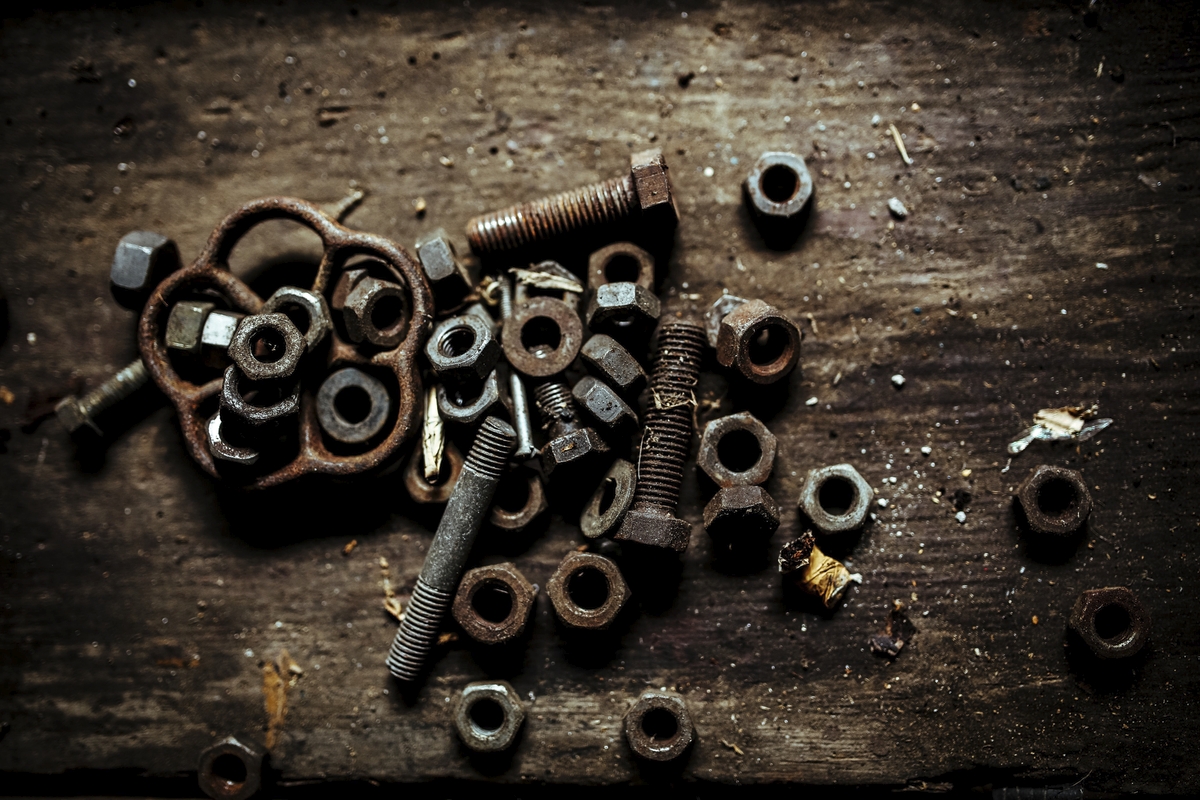Bolts and fasteners come in various types, sizes, and grades, both in inches and millimeters. Here's an overview of the commonly used types and their specifications:
Types of Bolts:
- Hex Bolts: Hex bolts have a hexagonal head and are used with a wrench or socket for tightening. They come in various lengths and diameters.
- Carriage Bolts: Carriage bolts have a rounded, dome-shaped head and a square section under the head. They are often used in applications where a smooth finish is desired.
- Lag Bolts: Lag bolts, also known as lag screws, have a hexagonal head and a pointed tip. They are used for heavy-duty applications and typically require pre-drilled holes.
- Machine Screws: Machine screws have a cylindrical shaft with a flat or rounded head. They are typically used with nuts or tapped holes in metal or machinery.
- Shoulder Bolts: Shoulder bolts have a cylindrical shoulder between the head and the threaded section. They are used for precision applications where rotational movement is required.
Sizes and Grades:
Bolt sizes are typically specified by their diameter and thread pitch, either in inches or millimeters. Common inch sizes range from 1/4" to 1" or more, while millimeter sizes typically range from M5 to M24 or larger.
Grades indicate the strength and material composition of the bolts. Some common grades for inch bolts include:
- Grade 2: Standard low-carbon steel bolts.
- Grade 5: Medium-carbon steel bolts with increased strength and wear resistance.
- Grade 8: High-strength bolts made of medium-carbon alloy steel, often used in heavy-duty applications.
For metric bolts, the strength is often indicated by a property class, such as:
- Class 4.6: Low-strength bolts suitable for general applications.
- Class 8.8: Medium-strength bolts commonly used in automotive and machinery industries.
- Class 10.9: High-strength bolts used in applications where extra strength is required.
It's important to consult specific industry standards and guidelines or seek professional advice to determine the appropriate bolt type, size, and grade for your specific application.
Inch bolts come in a range of diameters. Here are some commonly available sizes for inch bolts:
1/4" bolt:
- Diameter: 0.250 inches
5/16" bolt:
- Diameter: 0.3125 inches
3/8" bolt:
- Diameter: 0.375 inches
7/16" bolt:
- Diameter: 0.4375 inches
1/2" bolt:
- Diameter: 0.500 inches
9/16" bolt:
- Diameter: 0.5625 inches
5/8" bolt:
- Diameter: 0.625 inches
3/4" bolt:
- Diameter: 0.750 inches
7/8" bolt:
- Diameter: 0.875 inches
1" bolt:
- Diameter: 1.000 inches
These are just a few examples, and there are additional sizes available between these increments and beyond. It's important to note that inch bolts are commonly available in both standard (coarse) and fine thread options, which may have different thread pitches. The specific size and thread pitch required for a particular application will depend on the project's specifications and industry standards.
Metric bolts come in various diameters as well. Here are some commonly available sizes for metric bolts in millimeters:
M5 bolt:
- Diameter: 5 mm
M6 bolt:
- Diameter: 6 mm
M8 bolt:
- Diameter: 8 mm
M10 bolt:
- Diameter: 10 mm
M12 bolt:
- Diameter: 12 mm
M14 bolt:
- Diameter: 14 mm
M16 bolt:
- Diameter: 16 mm
M18 bolt:
- Diameter: 18 mm
M20 bolt:
- Diameter: 20 mm
M24 bolt:
- Diameter: 24 mm
These are just a few examples, and there are additional sizes available between these increments and beyond. It's important to note that metric bolts also come in different thread pitches, which specify the distance between threads. The specific size and thread pitch required for a particular application will depend on the project's specifications and industry standards.
No reviews found


